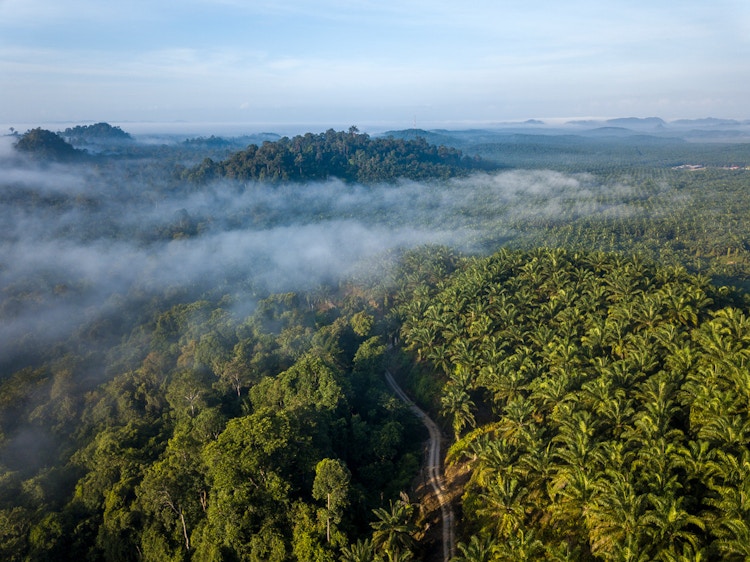Norway tightens its biofuel policy stifling the use of palm oil
Biofuels with high deforestation risk, such as palm oil, will likely be forced out of the Norwegian market as a result of a bold new policy.

A Norwegian biofuel policy could be good news for the rainforest. Photo: Rainforest Foundation Norway
The use of crop-based biofuels in the Norwegian transport sector faces further restrictions in a new biofuels policy announced by the Norwegian government. The volume blending mandate for advanced biofuels sees a sharp increase.
“Norway is stifling the use of palm oil-based biofuels and other fuels with a high deforestation risk. This is a victory for the rainforests and the climate”, says Nils Hermann Ranum of Rainforest Foundation Norway.
Norway has pioneered a progressive biofuel policy for many years, however up to 10 percent of all diesel sold in the country to date has contained palm oil. Palm oil-based biofuel is a major threat to the world’s rainforests, and has even higher greenhouse gas emissions than fossil diesel.
In 2019, 126 million litres of palm biodiesel were used for road transport in Norway. The record was in 2017, when 317 million litres of palm-based diesel were sold.
From January 2021, a major change to the country’s biofuel policy means that the maximum volume of crop-based biofuel used to achieve the blending mandate will be reduced from the current 10.1 percent to 6.5 percent.
Will not fuel deforestation
Nils Hermann Ranum in Rainforest Foundation Norway thinks it is more than likely that rapeseed oil-based first-generation biodiesel will be the preferred crop-based fuel to achieve the mandate, as a result of technical and market factors.
“No biofuel feedstock will be banned, but higher-value palm oil-based HVO (hydrotreated vegetable oil) diesel will most likely not be competitive,” he says.
The move can be seen as fulfilling a commitment on the part of Norway’s government to exclude high-deforestation risk biofuels from its biofuel policy, a commitment which has been included in the government platform since January 2019. Upon announcing the changes, the government explicitly tied them to the need to avoid biofuels that contribute to deforestation.
Based on data from the European Commission, Rainforest Foundation Norway has estimated how much rainforest is lost due to Norway’s consumption of palm oil-based fuel. 2019’s sales of 126 million litres resulted in a loss of approximately 8,170 hectares of rainforest, and global emissions of approximately 747,000 tonnes of CO2 equivalents.
“Rainforest Foundation Norway has been fighting for many years to get rid of biofuels resulting in increased deforestation. Stifling the use of palm oil-based biofuel will save rainforests, so this is really good news”, says Ranum.